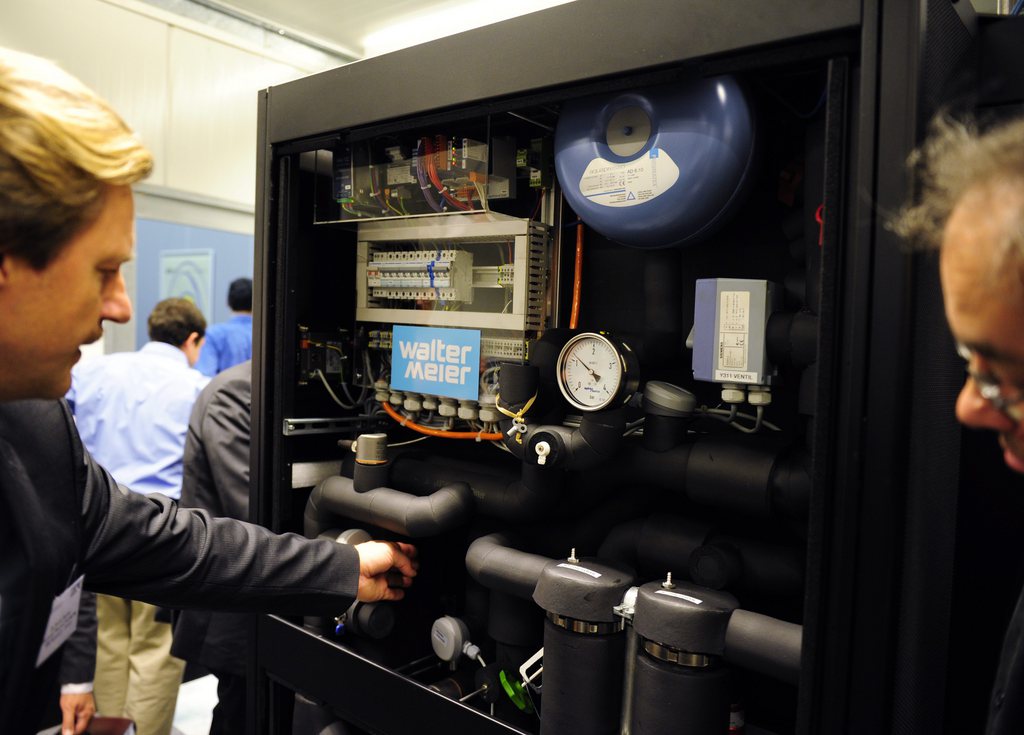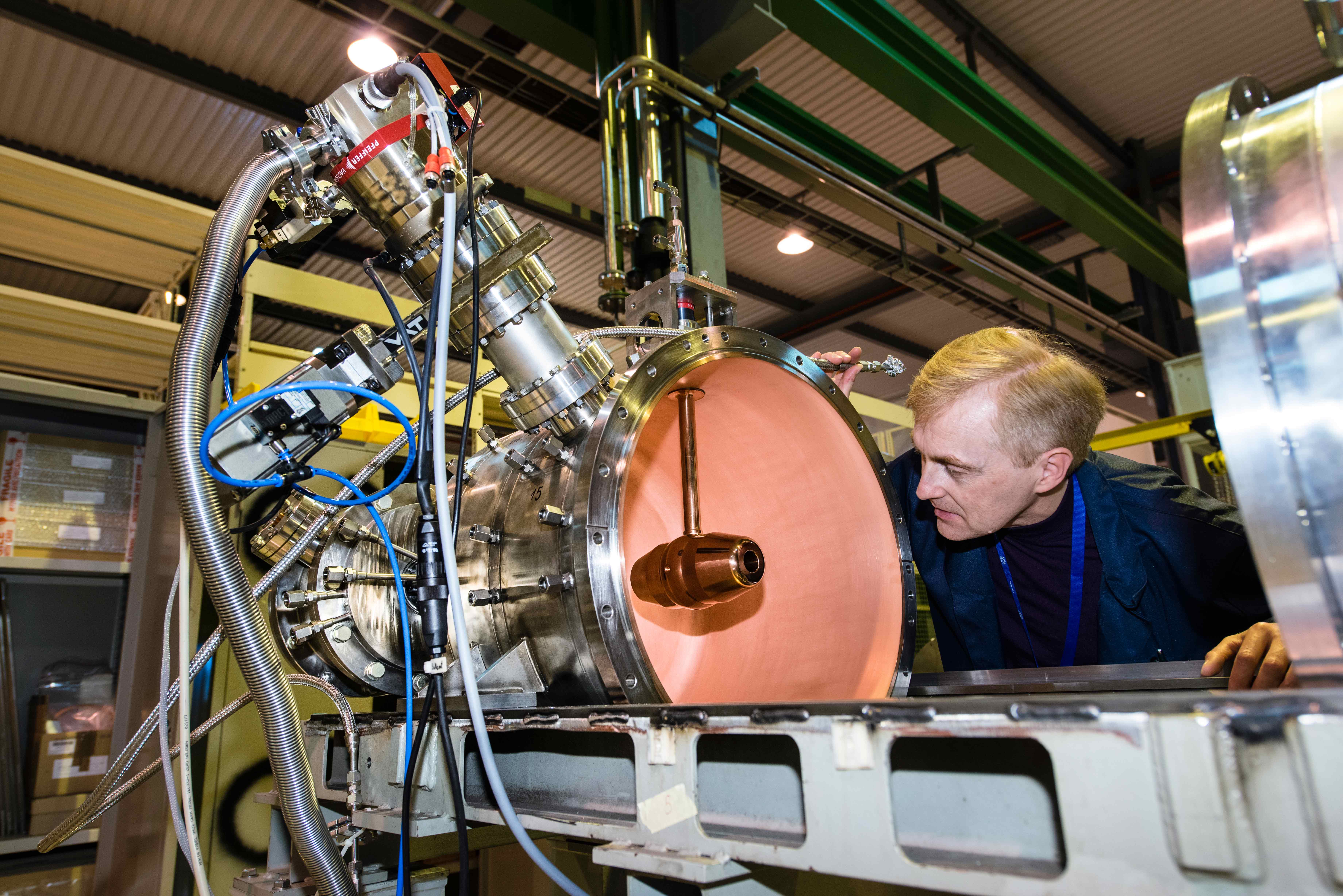Saving energy with water instead of air

Europe's fastest supercomputer stays cool with water instead of air – resulting in energy savings of 40 per cent. This innovation is based on a research project involving Zurich’s Federal Institute of Technology and IBM.
Although there are no official figures, it is estimated that the world’s computers produce as much carbon dioxide, a greenhouse gas, as all air traffic. In other words, energy consumption and efficiency levels are key areas of computer development – both for ecological and economic reasons.
Energy accounts for half of the expense in the construction and operation of a supercomputer, or a high-performance data centre. For example, air conditioning alone accounts for half of total electricity consumption.
“Computers convert 100 per cent of the electrical energy into heat. With air conditioning, that energy evaporates and is wasted. In most cases, the air has to be cooled in advance. On top of that, we need additional power for the fans that blow the hot air away,” Dimos Poulikakos, head of the thermodynamics lab at Zurich’s Federal Institute of Technology (ETHZ), told swissinfo.ch.
Delicate hotspot
Poulikakos works with Aquasar, an experimental mainframe computer commissioned in May 2010 and built by IBM. The ETHZ developed the cooling system, which uses water rather than air. The cold water flows through the system; afterwards, the system is cool and the water is used to supply the campus’ heating and hot water system.
“The water flows in a circuit and the system is universal. We use it for heating, but in hot countries, it could be used for the desalination of sea water, for example,” Poulikakos said. “We cut energy costs in half because we neither cool the air, nor need to remove it. Moreover, we gain heat instead of losing it.”
It sounds relatively simple, but it is not, because unlike air, water conducts electricity. “We have developed a special heat exchanger and attached it to the inactive undersides of the chips,” Poulikakos explained. “The prototype Aquasar has been working flawlessly for years.”
Surgical precision
But the ETHZ researchers are still not satisfied.
“The trick is to get closer and closer to the chip in order to remove the heat. So like surgeons, we have to get down to where it is really hot, and from there we remove the heat,” Poulikakos said.
“This new technique that we’ve developed uses micro-channels to bring the water much closer to the chip. This is more efficient, and the system seems to be reliable. It’s just a matter of time before it’s ready for production.”
However, the Aquasar system itself is ready for production according to Poulikakos. “Aquasar is a good example of how collaboration between the research and industry sectors can lead to a ground-breaking product.”
Market leader IBM
For the first time, IBM is now using the Aquasar cooling system on a commercial scale: SuperMUC is the fastest supercomputer in Europe.
The machine, which was booted up in Munich this summer, can perform up to three quadrillion calculations per second. Both researchers and industry specialists use it.
“Thanks to the water cooling system, we can save 40 per cent on energy costs. During the machine’s life span, that represents a savings of about 20 per cent of the total cost,” Bruno Michel of IBM’s Zurich research centre told swissinfo.ch.
“Now we’re going to put the SuperMUC system on the market. We’re leaders in this area.” He added that the competition would soon bring more water-cooled systems onto the market.
The supercomputer at the Leibniz computer centre in Garching near Munich has the computing power of 110,000 of today’s conventional computers.
Specifically, the performance of the 100-ton SuperMUC is three petaflops per second. (FLOP = Floating Point Operations Per Second).
In theory, this would be like three billion people using calculators to perform about a million simultaneous calculations per second.
The supercomputer became operational to mark the 50th anniversary of the Leibniz computer centre in July 2012; Germany ranks fourth among countries with supercomputers.
The savings effect of using water cooling saves about €1 million (SFr1.2 million) per year on operational costs.
(Translated from German by Susan Vogel-Misicka)

In compliance with the JTI standards
More: SWI swissinfo.ch certified by the Journalism Trust Initiative










You can find an overview of ongoing debates with our journalists here . Please join us!
If you want to start a conversation about a topic raised in this article or want to report factual errors, email us at english@swissinfo.ch.